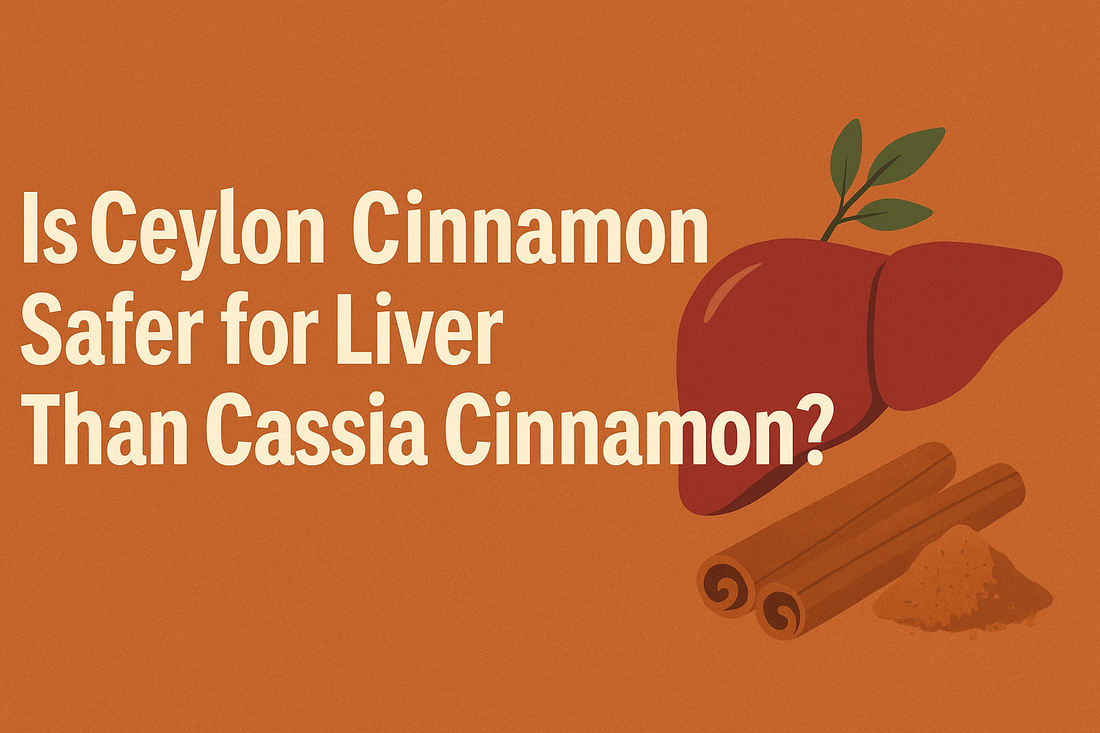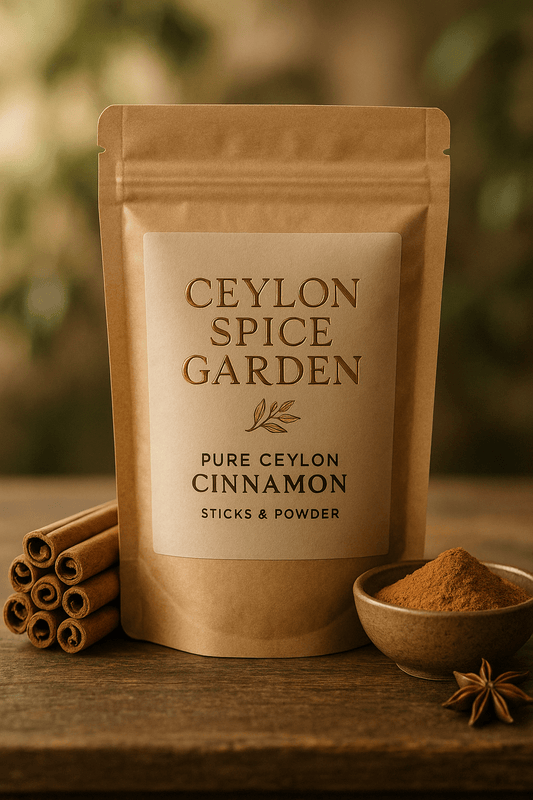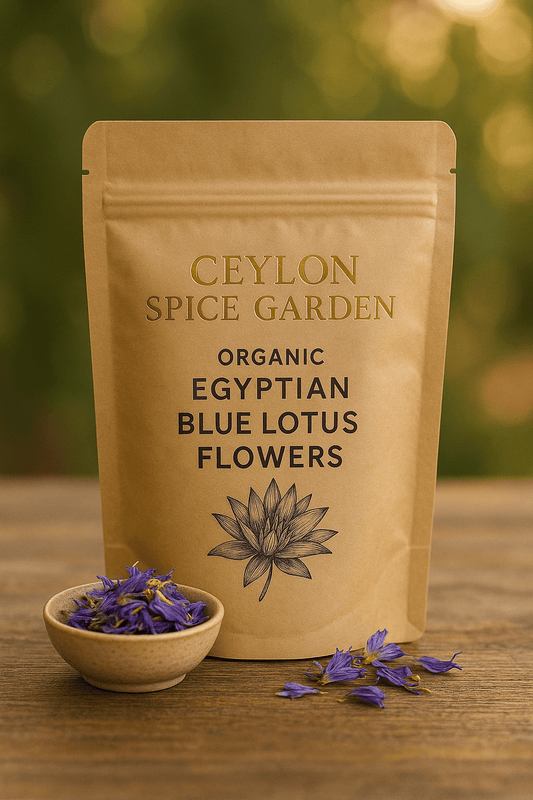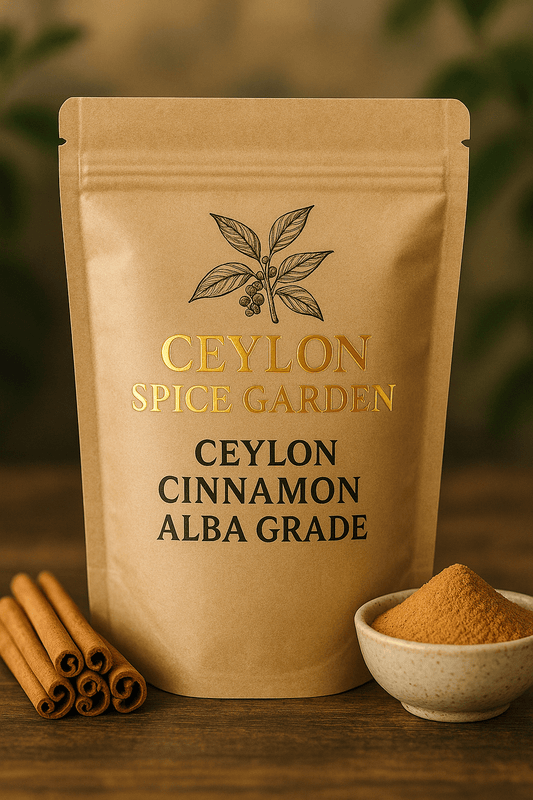
Is Ceylon Cinnamon Safer for Liver Than Cassia Cinnamon? The Science-Based Answer
Is Ceylon Cinnamon Safer for Liver Than Cassia Cinnamon?
Table of Contents
- The Key Difference: Coumarin Content
- Understanding Liver Safety Concerns
- Scientific Comparison: Ceylon vs Cassia
- How Coumarin Affects Your Liver
- Safe Consumption Guidelines
- How to Choose the Right Cinnamon
- Additional Health Benefits of Ceylon Cinnamon
- Expert Recommendations
- Frequently Asked Questions
- Final Verdict
The Key Difference: Coumarin Content
The answer to whether Ceylon cinnamon is safer for your liver than Cassia cinnamon is a resounding yes. The primary reason lies in a compound called coumarin, which has been linked to potential liver damage when consumed in large quantities.
Research published by Healthline reveals that Ceylon cinnamon (also known as "true cinnamon") contains only 0.004% coumarin, while Cassia cinnamon contains approximately 1% - that's 250 times more coumarin content.
Understanding Liver Safety Concerns
Coumarin is a naturally occurring compound that gives cinnamon its distinctive aroma. However, when consumed in excessive amounts, it can cause liver problems. The National Center for Complementary and Integrative Health (NCCIH) specifically warns that prolonged use of Cassia cinnamon could be problematic for people with liver disease.
Scientific Comparison: Ceylon vs Cassia
| Aspect | Ceylon Cinnamon | Cassia Cinnamon |
|---|---|---|
| Coumarin Content | 0.004% (trace amounts) | 1-3.5% (up to 250x more) |
| Liver Safety | Extremely safe for daily use | May cause liver issues with regular consumption |
| Scientific Name | Cinnamomum verum | Cinnamomum cassia |
| Origin | Sri Lanka | China, Indonesia, Vietnam |
| Taste Profile | Sweet, delicate, complex | Strong, spicy, one-dimensional |
| Price | More expensive | Less expensive |
How Coumarin Affects Your Liver
Scientific studies have shown that coumarin can cause liver damage through several mechanisms. Research published in Frontiers in Pharmacology indicates that coumarin and its metabolites can cause:
- Vacuolar degeneration of liver cells
- Hepatocyte necrosis (liver cell death)
- Apoptosis (programmed cell death)
- Elevated liver enzymes (markers of liver damage)
Real-World Impact
A study examining patients taking traditional Japanese medicines containing cinnamon bark found that many exceeded the safe daily intake of coumarin, with some showing elevated liver enzymes. This real-world evidence supports the laboratory findings about coumarin's potential liver toxicity.
Safe Consumption Guidelines
Understanding safe consumption levels is crucial for protecting your liver health:
For Cassia Cinnamon:
- Maximum daily amount: ½ teaspoon (approximately 1.3 grams) for a 150-pound adult
- Risk level: Just 1-2 teaspoons can exceed safe coumarin limits
- Recommendation: Use sparingly and not daily
For Ceylon Cinnamon:
- Daily consumption: Up to 1-2 teaspoons safely
- Risk level: Virtually no risk of coumarin toxicity
- Recommendation: Safe for daily use in normal culinary amounts
Quality Matters: When choosing Ceylon cinnamon, opt for certified organic Ceylon cinnamon from reputable sources to ensure authenticity and purity. Learn more about whether to choose powder or sticks based on your specific needs.
How to Choose the Right Cinnamon
Distinguishing between Ceylon and Cassia cinnamon can protect your liver health:
Visual Identification:
- Ceylon: Light brown, multiple thin layers, paper-like texture
- Cassia: Dark reddish-brown, thick bark, harder texture
Where to Buy:
- Health food stores: More likely to carry Ceylon cinnamon
- Online retailers: Wider selection of authentic Ceylon varieties
- Spice specialty shops: Knowledgeable staff can help identify types
Additional Health Benefits of Ceylon Cinnamon
Beyond liver safety, Ceylon cinnamon offers numerous health advantages:
Blood Sugar Management:
Ceylon cinnamon may help regulate blood sugar levels without the liver risks associated with Cassia. This makes it particularly beneficial for people with diabetes or prediabetes.
Cardiovascular Health:
Research suggests Ceylon cinnamon may help reduce cholesterol levels and support healthy blood pressure.
Weight Management:
Studies indicate that Ceylon cinnamon may support weight loss efforts through various metabolic mechanisms.
Stress and Sleep:
Ceylon cinnamon's compounds may help with stress relief and promote better sleep quality.
Expert Recommendations
Health professionals and researchers consistently recommend Ceylon cinnamon over Cassia for regular consumption:
Medical Advisory
The German Federal Institute for Risk Assessment recommends that people who regularly consume cinnamon should choose Ceylon cinnamon to avoid potential liver problems. This recommendation is based on extensive research into coumarin toxicity.
Special Populations:
- People with liver disease: Should only use Ceylon cinnamon under medical supervision
- Pregnant and nursing women: Ceylon cinnamon is safer, but consult healthcare providers
- Children: Ceylon cinnamon is the safer choice for regular use
- People taking medications: Ceylon cinnamon has fewer drug interactions
Frequently Asked Questions
Ceylon cinnamon is safe to consume in culinary amounts (1-2 teaspoons daily) due to its extremely low coumarin content. Unlike Cassia cinnamon, Ceylon cinnamon poses virtually no risk of liver toxicity when used in normal cooking and baking quantities.
Yes! Ceylon cinnamon has a sweet, delicate, and complex flavor profile, while Cassia cinnamon is more intense, spicy, and one-dimensional. Ceylon's subtle flavor is preferred by professional bakers and chefs for its sophisticated taste.
Absolutely. The minimal additional cost of Ceylon cinnamon is insignificant compared to potential medical expenses from liver damage. Given that Ceylon cinnamon contains 250 times less liver-damaging coumarin, it's a wise investment in long-term health.
Early signs may include fatigue, loss of appetite, nausea, abdominal pain, and elevated liver enzymes in blood tests. However, liver damage can occur silently, which is why prevention through choosing Ceylon cinnamon is the best approach.
While Ceylon cinnamon is much safer than Cassia, people with existing liver conditions should consult their healthcare provider before adding any cinnamon supplement to their routine. Ceylon cinnamon in small culinary amounts is generally considered safe.
Liver damage from coumarin can occur with prolonged exposure over weeks to months, depending on the dose and individual susceptibility. Some people may show elevated liver enzymes within a few weeks of high coumarin intake, while others may take longer to develop symptoms.
Yes, Ceylon cinnamon supplements are significantly safer due to their minimal coumarin content. However, always verify that supplements specifically state they're made from Ceylon cinnamon (Cinnamomum verum) rather than Cassia cinnamon.
Final Verdict: Ceylon Cinnamon is Dramatically Safer
The scientific evidence is clear: Ceylon cinnamon is dramatically safer for your liver than Cassia cinnamon. With 250 times less coumarin content, Ceylon cinnamon allows you to enjoy cinnamon's health benefits without liver risks.
For daily use, Ceylon cinnamon is the only sensible choice for health-conscious individuals who want to protect their liver while enjoying cinnamon's remarkable health benefits.
About Ceylon Spice Garden: As Sri Lanka's premier supplier of authentic Ceylon cinnamon, we're committed to providing pure, high-quality spices that support your health and well-being. Our organic Ceylon cinnamon is sourced directly from certified farms in Sri Lanka, ensuring you receive the genuine "true cinnamon" with minimal coumarin content for maximum safety and flavor.











